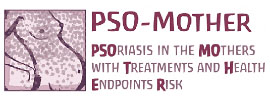|
 A central issue in epidemiology is the evaluation of the causal nature of reported associations between exposure to defined risk factors or treatments and the occurrence of disease. A central issue in epidemiology is the evaluation of the causal nature of reported associations between exposure to defined risk factors or treatments and the occurrence of disease.
This issue is even more important in environmental health sciences, where most of the research is observational in nature and the ability of the investigator to control exposure assignment is limited or non-existent. Nonetheless, besides contributing to the understanding of disease causation, etiologic studies are commonly regarded as providing the scientific basis for the adoption of preventive actions. Therefore, it becomes necessary a clear definition of what is meant by “causal relationship”, how to properly design an epidemiological study to detect causal effects, and under which conditions and assumptions such an approach is feasible.
The course will introduce the concept of causal inference within the framework of experimental designs. Then, observational studies will be introduced and special emphasis will be devoted on the assumptions needed to estimate causal relationships. Different approaches will be presented, such as propensity score, inverse probability weighting and irregular assignment mechanisms. Mediation analysis will be introduced, and operative methods to decompose causal effects into direct, indirect, mediated and interactive effects will be presented.
Lectures will be held by researchers of the Universities of Turin, Florence and the Harvard School of Public Health. All lectures will be followed by afternoon sessions, led by Prof. Joel Schwartz, where case-studies will be presented and discussed. Finally, individual case-studies from students will be selected for discussion on the last day.
Classes are aimed to graduate students with limited experience in the causal inference framework and basic knowledge of epidemiology and statistics. Epidemiologists, biologists, statisticians, mathematicians and public health scientists and operators are eligible to attend.
Program
Registration form
|




















 A central issue in epidemiology is the evaluation of the causal nature of reported associations between exposure to defined risk factors or treatments and the occurrence of disease.
A central issue in epidemiology is the evaluation of the causal nature of reported associations between exposure to defined risk factors or treatments and the occurrence of disease.

















